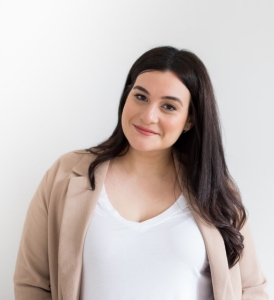Date & time
7:30 p.m. – 8:30 p.m.
Dr. Miriam Kirmayer
This event is free.
Online
Join clinical psychologist and leading friendship expert Dr. Miriam Kirmayer for a live Q&A and discussion on how we can navigate friendship challenges as young adults and university students. Dr. Kirmayer has studied the science of friendship for a decade and will share actionable tips for making new friends, maintaining existing connections, and setting boundaries in relationships that are being strained.
Dr. Kirmayer will be taking your questions! Register now to attend and send us your questions about friendships, which may be answered anonymously during the conversation.

Dr. Miriam Kirmayer is a clinical psychologist and leading friendship expert who has studied the science of friendship and social connection for over a decade. Her work focuses on helping others navigate life transitions, cultivate resilience and self-compassion, and build stronger relationships with the people who matter most. Dr. Kirmayer’s words and advice have appeared in outlets such as The Atlantic, CNN, Forbes, The New York Times, TIME, and Vogue. She is a featured expert for Psychology Today and Women’s Health and a frequent guest on television shows and podcasts, including The TODAY Show and NPR. As a speaker and consultant, Dr. Kirmayer partners with businesses and organizations on events, initiatives, and global studies related to social connection and mental health. Whether Dr. Kirmayer is working one-on-one with clients or sharing the science of connection and compassion, her goal is to help others create meaningful relationships and fulfilling lives.
Dr. Kirmayer lives in Montreal with her husband and their sweet, curious, and spirited son, Liam. She is currently writing her first non-fiction book on adult friendships. Connect with Miriam and learn more about her work at MIRIAMKIRMAYER.COM.
© Concordia University